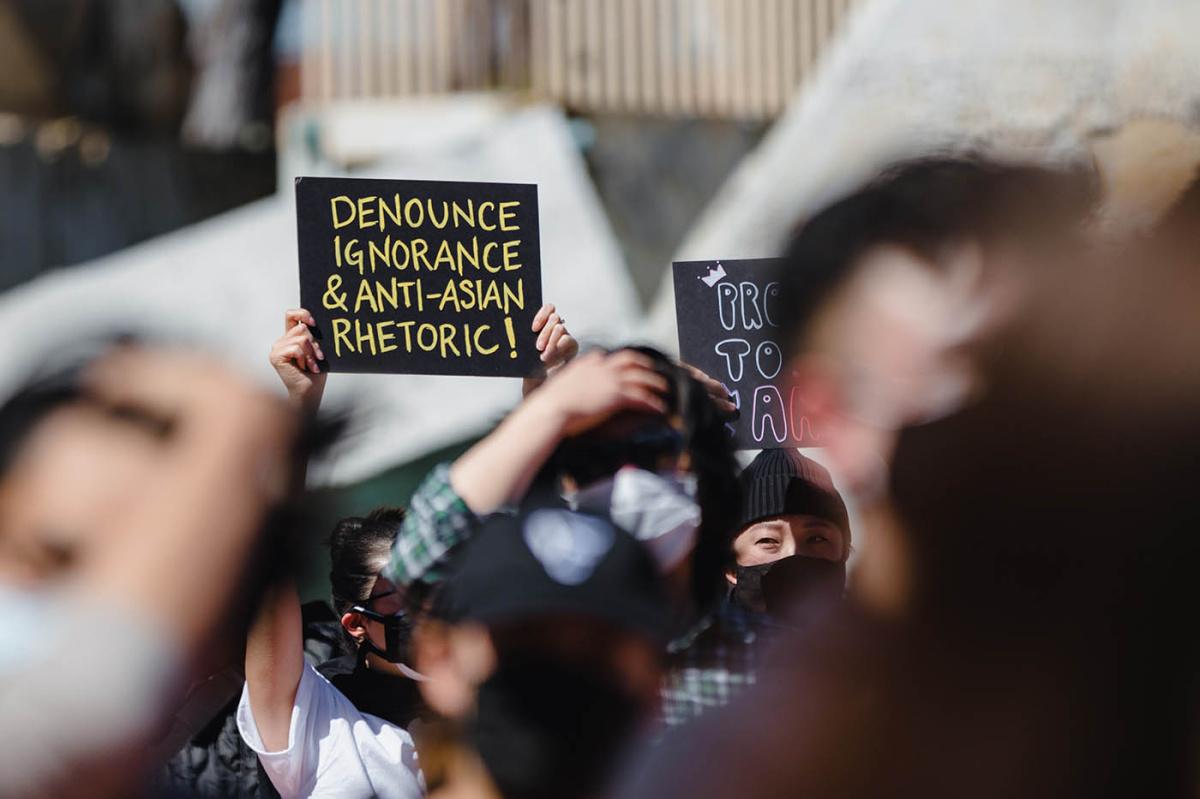Image Credit: stopaapihate.org
Washington, D.C.: Reports of online anti-Asian hate have seen a sharp rise since Donald Trump’s victory in the 2024 U.S. presidential election, according to new data released by Stop AAPI Hate.
The advocacy group attributes the surge to Trump’s hardline immigration policies and ongoing debates around H-1B visas, which have fueled xenophobic rhetoric across digital platforms.
Key Facts:
- Anti-Asian slurs online increased by 66% in the months following Trump’s re-election, reaching a record 87,945 in January 2025.
- Threats of violence against Asians online rose by over 50% between November 2024 and January 2025.
- Anti-South Asian hate specifically spiked by 75%, coinciding with debates over job opportunities and immigration policies.
The spike in online hate speech, Stop AAPI Hate reports, is closely linked to Trump’s controversial stance on immigration.
His administration has intensified rhetoric against undocumented immigrants while also facing criticism for its approach to legal immigration programs like H-1B visas.
Indians, who make up the majority of H-1B visa recipients, have been particularly targeted, with online discourse revolving around accusations of “job theft” and threats to “white livelihood.”
Cynthia Choi, Co-founder of Stop AAPI Hate and Co-Executive Director of Chinese for Affirmative Action, linked the rise in xenophobic attacks to the broader political climate.
“Trump, his far-right loyalists, and his billionaire backers like Elon Musk are wasting no time dehumanizing and scapegoating immigrants, who are simply seeking safety and security in America,” she said.
Beyond online spaces, the surge in anti-Asian sentiment has led to renewed calls for policy changes.
Civil rights groups are urging lawmakers to strengthen protections against hate speech and discrimination while resisting efforts to dismantle diversity, equity, and inclusion (DEI) initiatives.
Trump, however, has dismissed DEI programs as “anti-merit” and discriminatory.
The consequences of this escalating online hate extend beyond social media, experts warn.
Studies have shown that spikes in digital hate speech often translate to real-world violence, putting Asian American communities at heightened risk.
Advocacy organizations are calling for greater tech industry accountability to curb the spread of harmful content, alongside stronger legal measures to address racially motivated threats.
Immigrants are an undeniable part of America’s fabric. We refuse to be silenced by the Trump administration’s anti-immigrant agenda.
— Stop AAPI Hate (@StopAAPIHate) February 19, 2025
That’s why today we’re launching https://t.co/oYzExWVR24 — a new advocacy campaign in support of immigrant and AAPI communities. 🧵⬇️
Do You Know?
The first documented federal law targeting Asian immigrants in the U.S. was the Chinese Exclusion Act of 1882, which banned Chinese laborers from immigrating to the country for over 60 years. (Source: U.S. National Archives)
Key Terms:
H-1B Visa: A non-immigrant visa allowing U.S. companies to hire foreign workers in specialized fields such as technology, engineering, and finance.
Diversity, Equity, and Inclusion (DEI): Policies and practices aimed at promoting representation and fair treatment of historically marginalized groups.
Stop AAPI Hate: A nonprofit organization tracking and advocating against hate incidents targeting Asian Americans and Pacific Islanders.
Xenophobia: Fear or hatred of foreigners or people from different cultural backgrounds.


